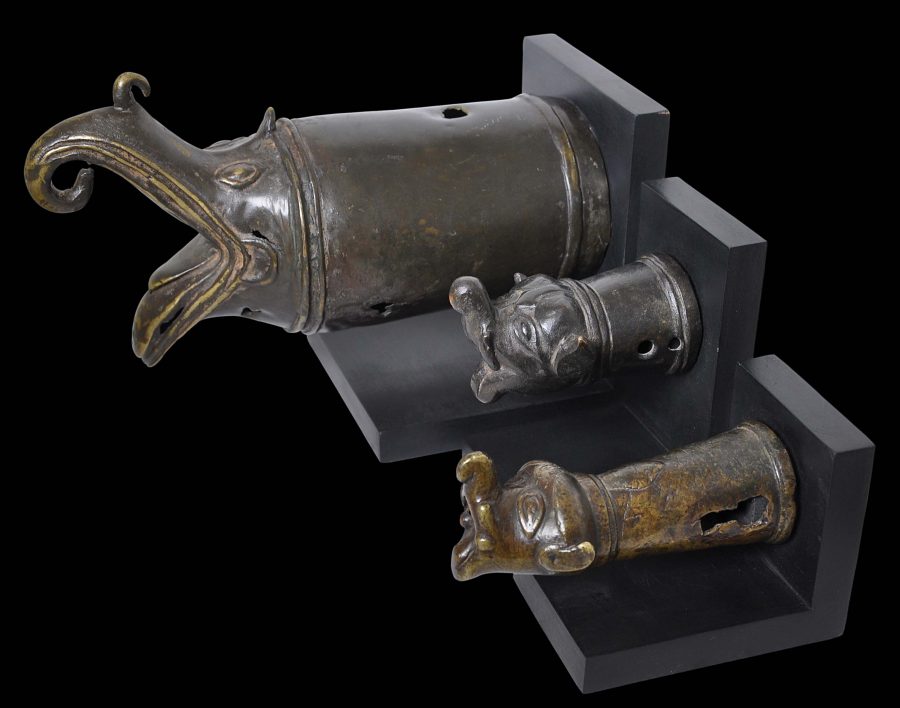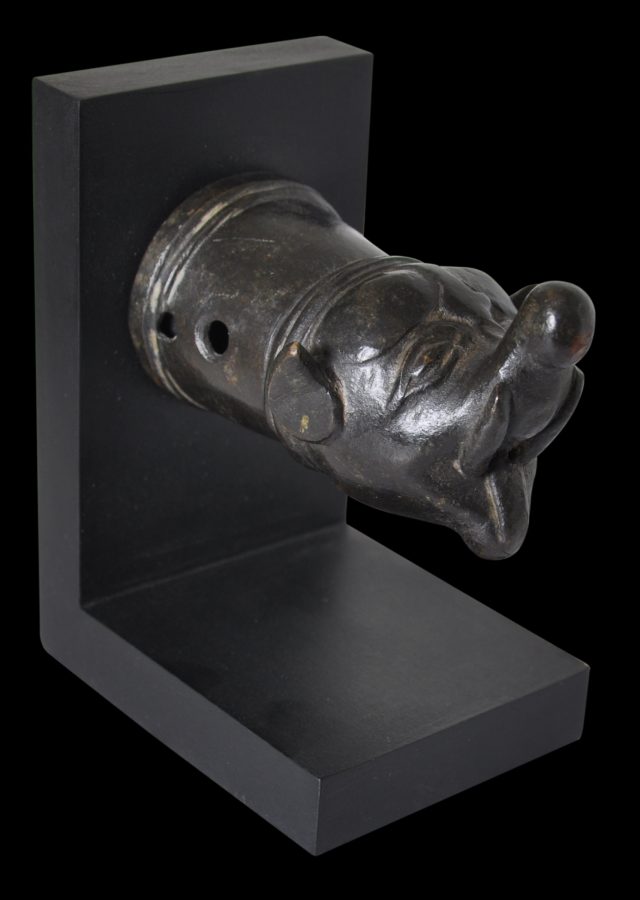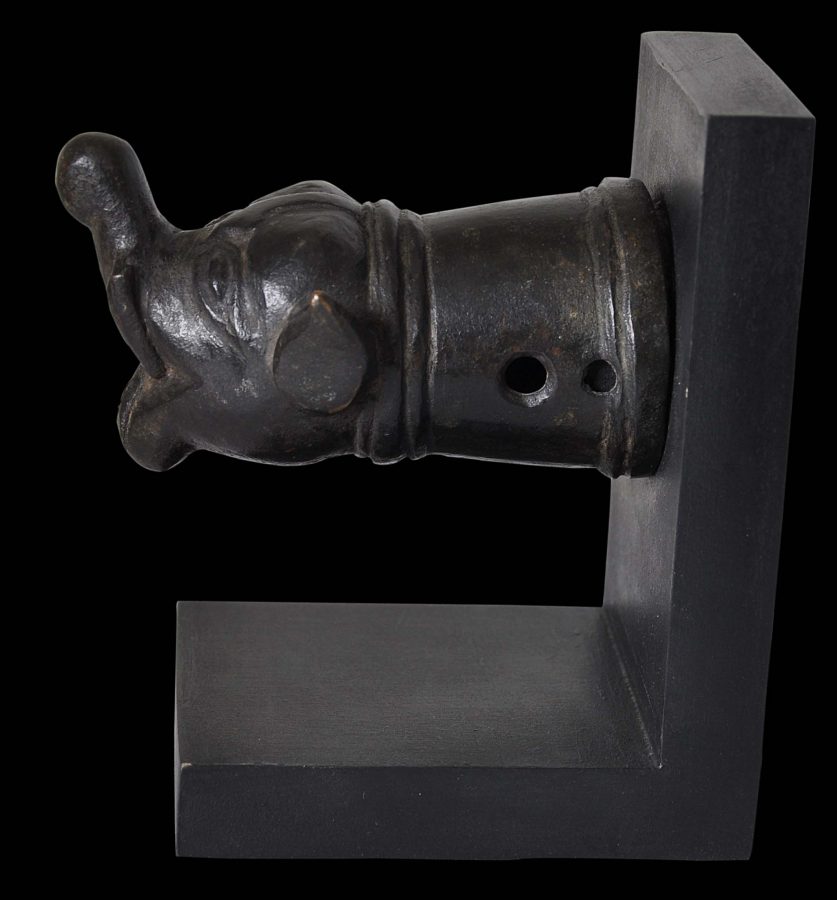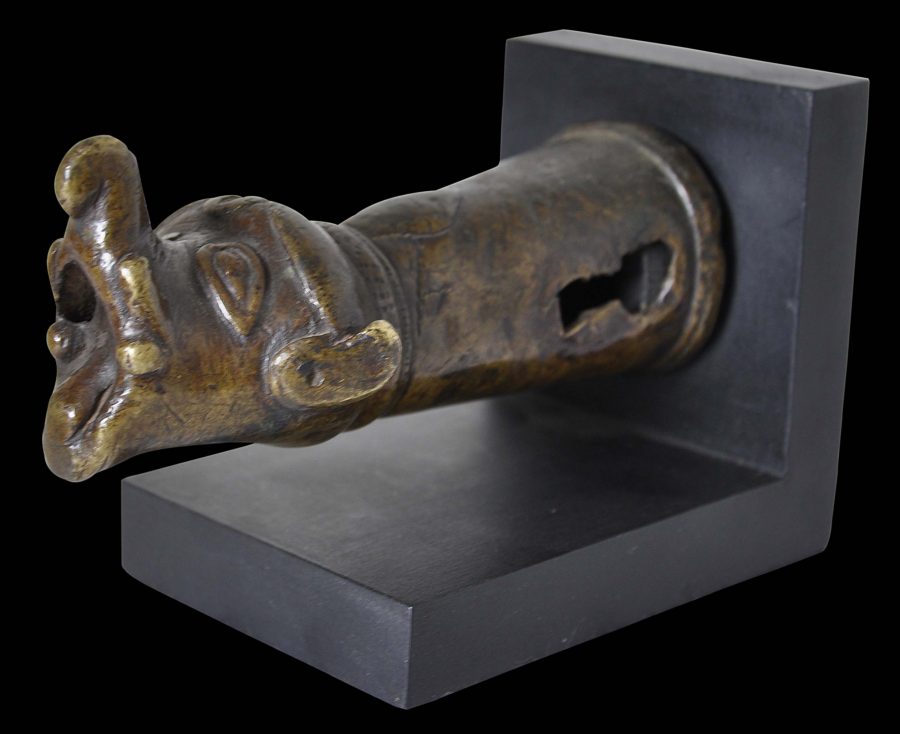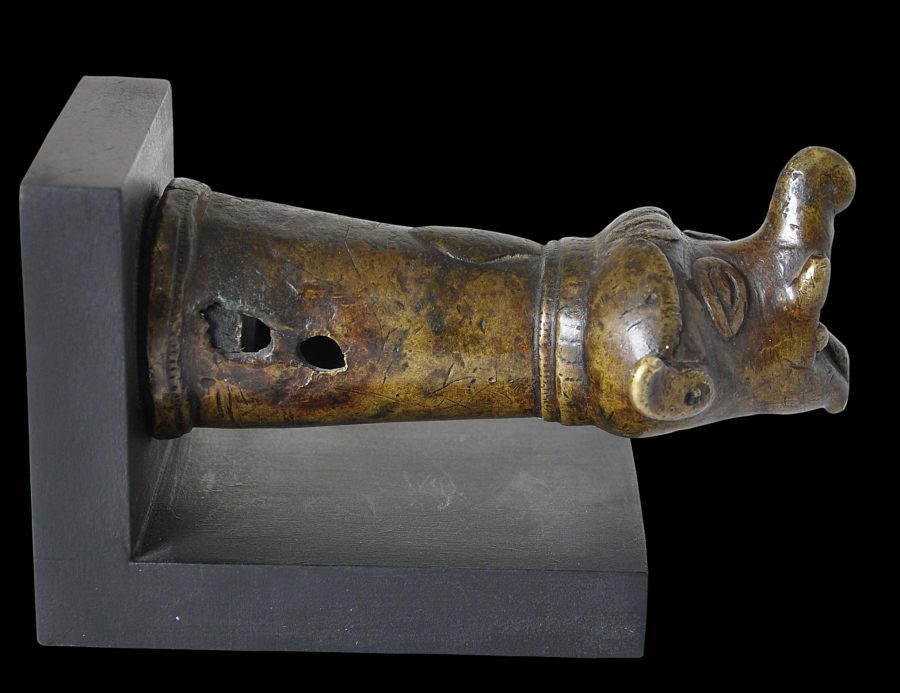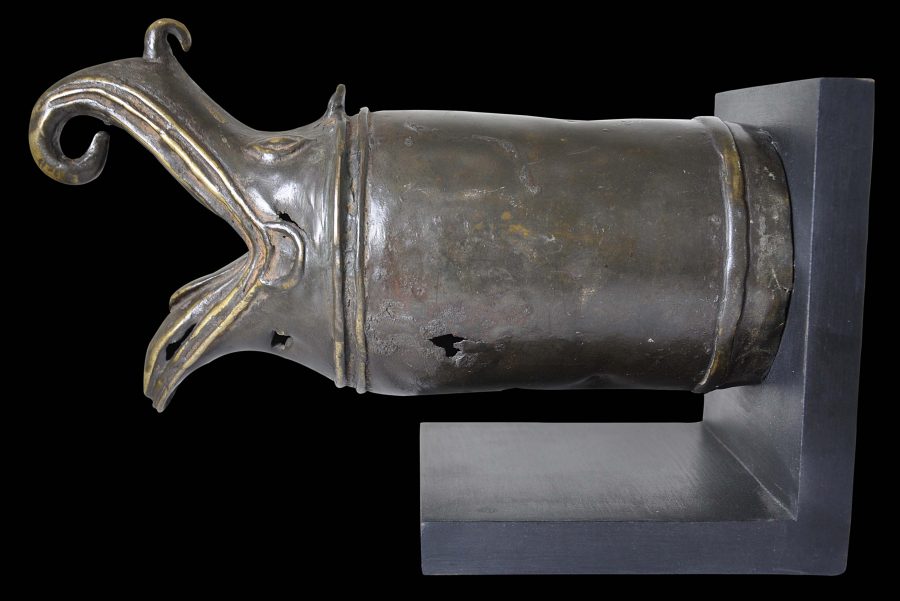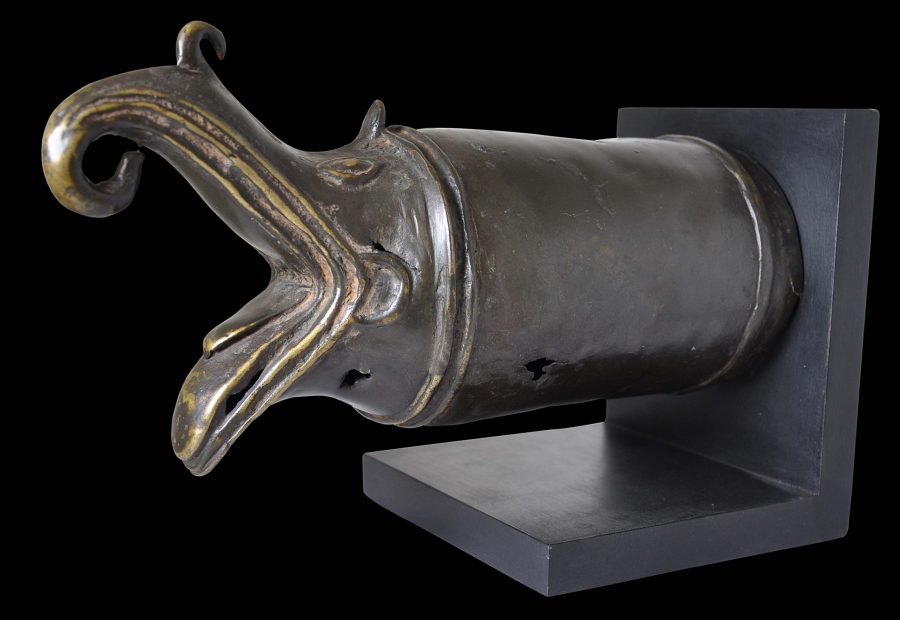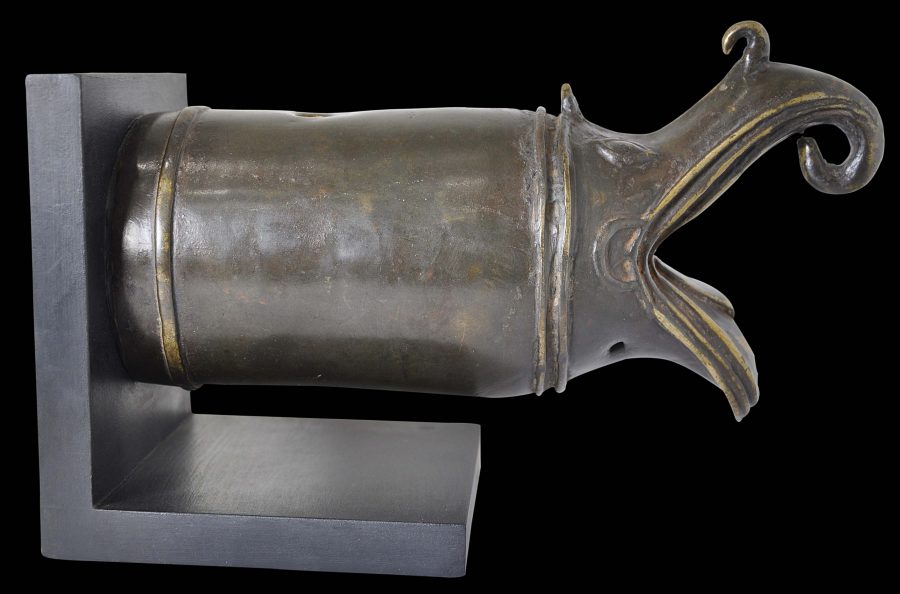Enquiry about object: 3128
Three Indian Mounted Bronze Palanquin Pole-Ends
India 17th-18th century
lengths (without stands): 10.5cm, 13cm, 26cm; height of largest (with stand): 15.5cm
Provenance
UK art market
Each of these three bronze palanquin pole ends is in the form of a makara, a mythical sea or water creature with head that is a cross between a crocodile and an elephant and a non-matching body such as that of a fish, if the head is more like that of an elephant. Precise forms vary regionally, but the basic form is associated mostly with South India and Sri Lanka, and is based on Hindu lore.
Palanquins were a form of litter or wheel-less vehicle used in India to transport people. The individual being transported would sit or lie on a platform that was raised on poles which were then carried, often on the shoulders, or runners. The pole ends often were decorated such as with the finials here.
The three examples here are in fine condition. There are small age-related holes here and there but these are incidental to their overall sculptural value. Each also has holes in their sides that would have allowed the finials to be affixed to the poles. They also have deep patinas and obvious age. Each is mounted on custom-made black wooden mounts of graduated sizes to match the graduated sizes of the finial. Overall, the three are very decorative and sculptural as a group.
References
Najat Haidar, N., & M. Sardar, Sultans of Deccan India 1500-1700: Opulence and Fantasy, Metropolitan Museum of Art, 2015.
Zebrowski, M., Gold, Silver & Bronze from Mughal India, Alexandria Press, 1997.


